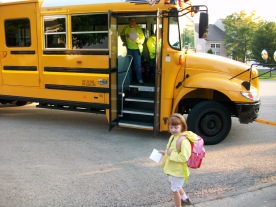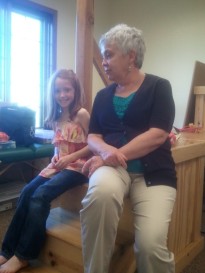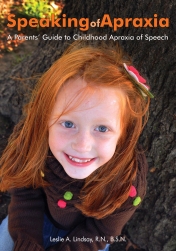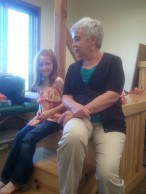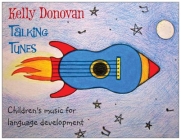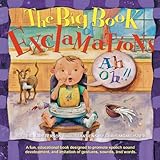By Leslie Lindsay
Absolutely touched and honored to be mentioned in this lovely article written by Indiana mom, V. Cantwell for National Developmental Disabilities Awareness Month (March 2016):
Surviving and Thriving with a Special Needs Child
Somewhere before her first birthday, my husband starting seeing signs that something was wrong. She wasn’t cooing or babbling. Because he has two older daughters, he knew this wasn’t normal. When she ate solid food, she stuffed her mouth full without swallowing. And then things started to snowball… her first words were late, she wasn’t walking yet, her vocabulary was nowhere near where her pediatrician recommended. It was clear: she was missing many of her milestones. Something was wrong with our little girl’s development. But what was it? Why was this happening?
Little did I know that we were beginning our journey with Childhood Apraxia of Speech, or CAS. We had a long road ahead of us, and it wasn’t going to be easy.
Around this time, our pediatrician referred us to First Steps, Indiana’s early intervention program. Lauren qualified because of her developmental delays, which led to over a year of physical and speech therapy. When she “aged out” of First Steps at age three, the next step was to see if she qualified for a Developmental Preschool based on her speech. (A developmental preschool is a preschool especially designed for children with special needs, whether it is a disability or a developmental delay.) She qualified, so she was able to continue getting the speech and occupational therapy she so desperately needed. On my daughter’s third birthday, we strapped her little backpack on, watched her make the big climb up the school bus steps, and sent her to preschool. She literally rode a school bus (with special car seats for toddlers, but still!). We also learned that music therapy and hippo-therapy could help, so she went to music classes and horse-riding therapy. We still had no idea why this was happening: her speech was jumbled, she couldn’t say her own name, and she couldn’t keep up with kids her age on the playground.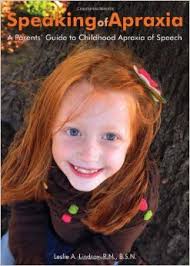
After Lauren started at her amazing preschool, we finally got our answer. Lauren’s speech therapist thought it was Apraxia of Speech, a neurologically-based motor speech disorder. Without getting technical, basically this means that when her brain tried to tell her mouth or muscles what to do, the message got scrambled. She knew what she wanted to say, but when the words came out, they were often unintelligible. I immediately started researching. Thankfully I found an amazing book that changed my life: “Speaking of Apraxia: A Parent’s Guide to Childhood Apraxia of Speech” by Leslie Lindsay, an R.N. and mother with a child like mine. I knew it: this was it. We finally had our answer. We learned that CAS has nothing to do with intelligence. And we finally started to see the light at the end of the tunnel.
Lauren is now seven years old, is just as easy going and happy as when she was born, and is the greatest joy in my life. She ended up spending three years in developmental preschool. We had to hold her back and start her in kindergarten a year later than her peers, upon her teacher’s recommendation at her annual IEP meeting. (An IEP is a document that all children who qualify for special services receive, and is developed by parents, therapists, teachers and other school staff during an IEP meeting.) She still gets speech therapy twice a week at school, and probably will until at least the third grade. CAS has slightly affected her ability to learn to read and recite her numbers. But overall, she loves school, is incredibly social, is keeping up with the other kids, and even participated in dance and swim lessons last year.
Our daughter was lucky enough to be diagnosed early, had access to therapy, had a family and school that were extremely involved in her development, has had an easy-going temperament which didn’t cause her to get frustrated, and is motivated to try at her therapy sessions. All of these things have led her to where she is today.
This process of mothering a child with special needs has been challenging. I am an achiever, a perfectionist, and extremely type A. I have had to accept that Lauren will do things at her own pace, in her own time. Play dates were not easy for either of us when Lauren was younger. It’s not easy to hear that your child is struggling at school during IEP meetings. What I’ve learned through Lauren’s diagnosis of CAS is that life is not always easy, and sometimes the hard things make you better: kinder, more understanding, more empathetic, more patient.
If your child is struggling with a delay or disorder of some sort, no matter where you are with a diagnosis, hang in there. Keep the faith. Be your child’s advocate and biggest cheerleader. Do the work. Be patient with both yourself and your child. And know that it does get better, I promise.
About Vanessa
 Vanessa is a proud Hoosier, currently residing in and raising her family on the north side of Indy in Westfield. She earned an undergraduate degree in Real Estate and a Master’s degree in Accounting from Indiana University. After graduation, she built the majority of her career at an S&P 100 company in Indianapolis. Recently she stepped away from the business world to recharge and focus on her family. Vanessa met her husband Ian in 2008, as well as his two beautiful daughters Audrey and Olivia, and the two quickly welcomed their daughter Lauren to the world in 2009. She enjoys being a “girl mom” and having adventures around town as a family. Now that she’s out of the rat race, she enjoys volunteering at the Grace Church choice food pantry and planning parties for her daughter’s classroom as a room parent. Her interests include working out, reading, anything red velvet, spoiling her two cats Gilbert and Grady and traveling to Michigan as often as possible.
Vanessa is a proud Hoosier, currently residing in and raising her family on the north side of Indy in Westfield. She earned an undergraduate degree in Real Estate and a Master’s degree in Accounting from Indiana University. After graduation, she built the majority of her career at an S&P 100 company in Indianapolis. Recently she stepped away from the business world to recharge and focus on her family. Vanessa met her husband Ian in 2008, as well as his two beautiful daughters Audrey and Olivia, and the two quickly welcomed their daughter Lauren to the world in 2009. She enjoys being a “girl mom” and having adventures around town as a family. Now that she’s out of the rat race, she enjoys volunteering at the Grace Church choice food pantry and planning parties for her daughter’s classroom as a room parent. Her interests include working out, reading, anything red velvet, spoiling her two cats Gilbert and Grady and traveling to Michigan as often as possible.
[Originally on Indianopolis Moms Blog 3.28.16.]





